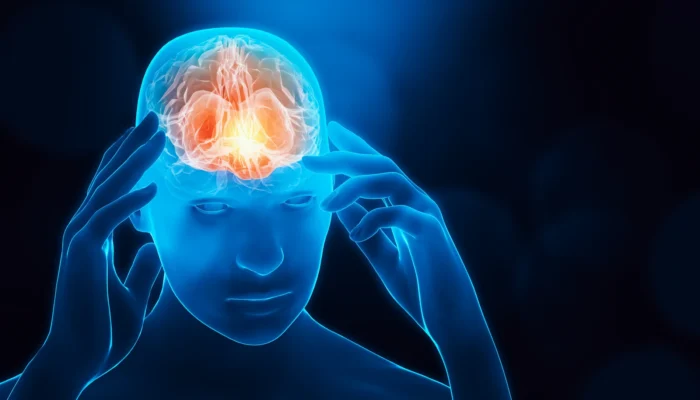
Hypnotherapy, a form of psychotherapy, utilizes relaxation, extreme concentration, and intense attention to achieve a heightened state of consciousness or mindfulness, often referred to as a trance. The process allows people to explore painful thoughts, feelings, and memories they might have hidden from their conscious minds. By revisiting these subconscious areas, individuals can gain a better understanding and control of their behaviors, emotions, and physical well-being. The method has been used to manage a variety of ailments – from stress, depression, and post-traumatic stress disorder to chronic pain, digestion disorders, and even minimize the side effects of chemotherapy.
The purpose of this article is to study the scientific aspects of hypnotherapy. Despite its increased acceptance and use in medical and psychological arenas, many misconceptions have been associated with this practice due to its portrayal in popular culture and media. This article seeks to dispel these myths and provide an evidence-based perspective of hypnotherapy. By understanding the facts presented, readers can better appreciate hypnotherapy not only as an alternative therapeutic tool but also as a fascinating example of the power of the human mind.
Understanding Hypnotherapy

Hypnotherapy is a type of therapeutic technique in which a hypnotherapist helps an individual achieve a relaxed, focused state of consciousness, often referred to as a ‘hypnotic state.’ In this state, the individual is more receptive to suggestions and can address and explore deep-seated issues, fears, or behaviors that are typically difficult to access in a regular conscious state. The hypnotherapist acts as a guide, facilitating the process while the individual retains control throughout.
Hypnotherapy works by tapping into the subconscious mind, a reservoir of feelings, thoughts, urges, and memories that are outside of our conscious awareness. The process of hypnotherapy involves inducing a hypnotic state, characterized by heightened concentration and suggestibility. In this state, the hypnotherapist can suggest ideas, concepts, and lifestyle adaptations to the patient, the seeds of which become firmly planted in the subconscious mind. This process is known as positive suggestion. It aims to change the patient’s behavior and mental state positively, often helping deal with issues such as anxiety, phobias, substance abuse, and negative behavior patterns.
A Brief History of Hypnotherapy
The concept of hypnosis can be traced back to ancient civilizations where ‘sleep temples’ were used for healing and divine communication. However, modern hypnotherapy has its roots in the work of Franz Mesmer, an 18th-century Austrian physician. He believed in a universal magnetic fluid in the human body, and imbalances in this fluid caused illness. Mesmer developed a healing method that later became known as ‘mesmerism.’ Fast forward to the 19th century, Scottish surgeon James Braid coined the term ‘hypnotism,’ based on the Greek word ‘hypnos,’ meaning sleep. However, it was Milton Erickson, a 20th-century psychiatrist and hypnotherapist, who revolutionized the practice and made it a standard therapeutic modality. Today, hypnotherapy is a recognized tool in psychotherapy, used to treat a wide range of physiological and psychological conditions.
The Neurological Aspects of Hypnotherapy

Neurologically, hypnotherapy impacts brain waves, which are responsible for our levels of alertness and consciousness. In the hypnotic state, the brain often shows alpha and theta brainwaves, typically experienced during relaxation and light sleep. This relaxed yet focused state allows the hypnotherapist to talk directly to the subconscious mind. Furthermore, studies conducted using electroencephalogram (EEG) have shown that hypnosis can change the way the brain processes information, opening up the potential for new neural connections. This process links directly to the idea of neuroplasticity – the brain’s capability to form new neural networks throughout life – reinforcing new behaviors and emotional responses. Through hypnotherapy, one can ‘re-train’ the brain to change unhealthy patterns, which is especially valuable in the field of mental health and behavioral therapy.
Methods of Hypnotherapy
There are several standard techniques that hypnotherapists commonly use. One is the use of imagery, where the individual is guided to visualize certain things or situations in a highly detailed way. Another technique involves using suggestions. This is the core of hypnotherapy where the hypnotic state of the individual is utilized to make suggestions that can alter behaviors, thoughts, and feelings. Hypnotherapists also use relaxation techniques to help individuals reach a state of deep calm and focus. Other methods involve uncovering techniques that aim to reveal forgotten or repressed memories that may be causing current problems. Each method serves its purpose and the choice of techniques is largely dependent on the unique circumstances of the individual seeking the therapy.
How Hypnotherapy Techniques Affect the Brain and Behavior

When these techniques are employed during a hypnotherapy session, they have specific impacts on the brain. These techniques aim to put the patient into a relaxed, receptive state, which can enhance the communication between the conscious and the subconscious mind. This state can change the brain wave activity, primarily increasing alpha and theta waves, promoting relaxation, focus, and suggestibility. Consequently, this impacts behavior by helping the individual internalize new beliefs and attitudes that can manifest in changes in their actions and reactions in their daily life. For instance, a suggestion made during hypnotherapy for reducing anxiety may translate into a calmer response to a previously anxiety-triggering situation. Reactions, or finally getting rid of habitual behaviors after some sessions of hypnotherapy.
Hypnotherapy constitutes an impactful therapeutic technique that leverages the power of the subconscious mind to bring about changes in perception, behaviors, and emotions. Various research studies testify to its effectiveness in managing a plethora of ailments ranging from chronic pain to mental health disorders. Despite widespread acceptance, hypnotherapy is still surrounded by numerous misconceptions. Thus, educating oneself through science-backed information and further research is important to gain an accurate understanding of this valuable therapeutic tool.














